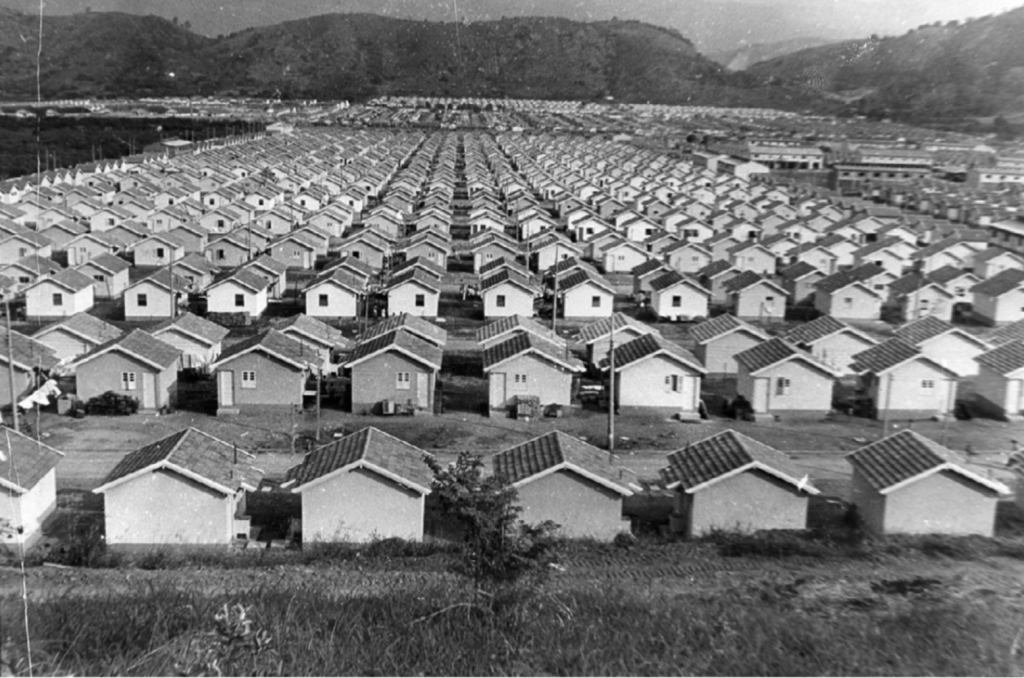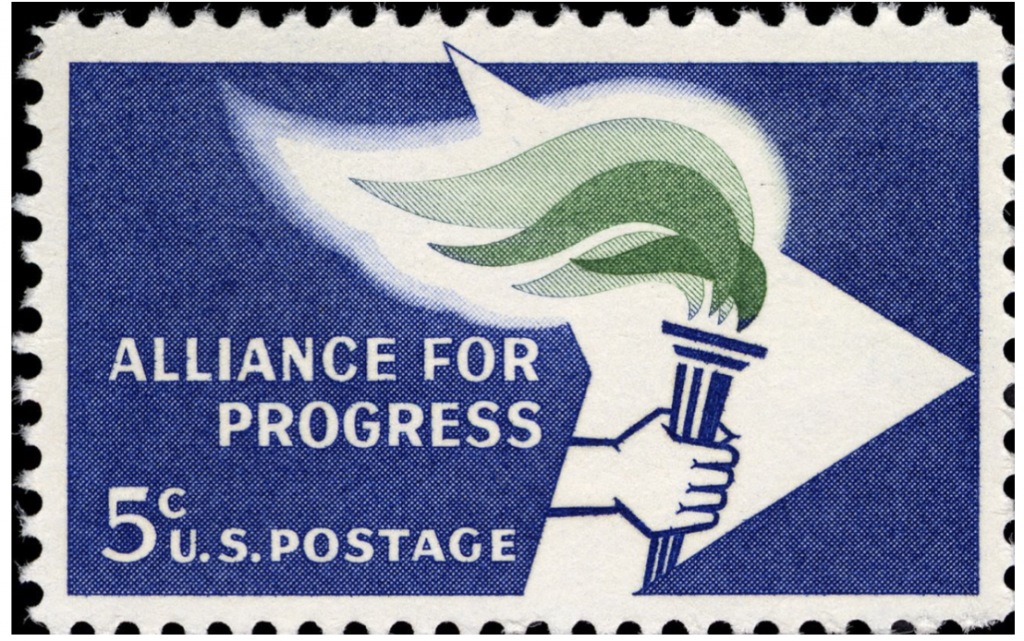

U.S.-Backed housing project in Rio de Janeiro Smithsonian National Postal Museum, Seal from 1963
The Alliance for Progress was based on a perceived shared desire for cooperation in Latin America. However, from the outset, it was clear that North Americans and Latin Americans had different conceptions of the nature of said collaboration. The U.S. held strong beliefs about what “Progress” constituted—private investment as a means to economic development. American-sanctioned values, such as ownership and self-improvement, were materialized in housing projects in Rio and in Buenos Aires, among other cities in Latin America. These huge projects didn’t necessarily serve the needs of the local populations, but rather promoted ideals of home ownership as a ticket to full modern citizenship—implying that those living in favelas, for example, did not belong in the future being built.
However, apart from a few instances of completed collaboration, Brazilian and American officials clashed on how the aid programs should be carried out. Most importantly, American officials grew increasingly distrustful of President João Goulart and his foreign policies. Fearing a Brazilian rapprochement with the USSR, U.S. officials grew eager to destabilize Goulart’s government. Goulart tried to play the same card that Brazil had played in the 1940s, conditioning its support from the United States on aid, threatening to turn to an American foe otherwise. However, this time, Goulart was in a fragile position with the Brazilian military, which increasingly saw him as a “communist threat”. Losing grip on his government, Goulart soon saw himself facing a U.S.-backed coup état.
Readings:
Felipe Pereira Loureiro, “The Alliance for Progress and President João Goulart’s Three Year Plan:The Deterioration of U.S.-Brazil Relations in Cold War Brazil | English
Leandro Benmergui, “The Alliance for Progress, Neocolonialism and Housing Policy in Rio de Janeiro and Buenos Aires in the 1960s” | English
Documents:
Organization of American States, “Resolution Establishing Inter-American Committee on the Alliance for Progress” | English



